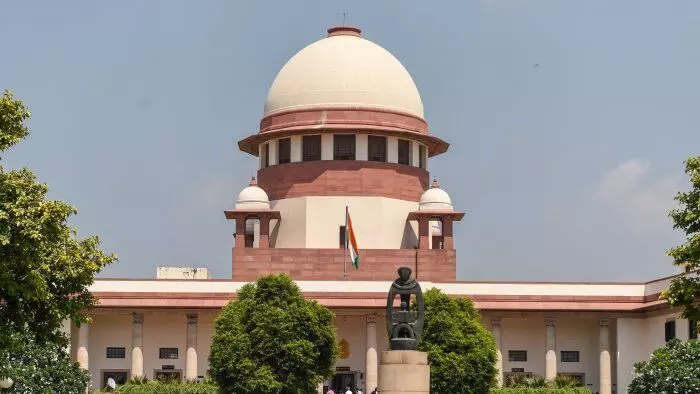Significant setback

In a crucial decision, the Supreme Court of India delivered a verdict on Tuesday that denies legal recognition of same-sex marriages in the country. This ruling, achieved through a narrow 3:2 majority on the five-judge Constitutional bench, has left the hopes of the LGBTQIA+ community hanging by a thread, pushing them onto a long and uncertain journey toward gaining due acceptance in the social institution of marriage. Ironically, the bench acknowledged the pervasive discrimination and harassment that same-sex couples face in India, recognising the severe hardships they endure. However, the court stopped short of providing a comprehensive solution to this problem. Instead, it conceded to the government's position that the authority to decide on this matter rests with the legislature. It is crucial to understand that the apex court's inability to grant legal recognition to same-sex marriages in India is primarily due to the separation of powers doctrine and not a lack of urgency to address the plight of the LGBTQIA+ community. The court, in its wisdom, urged the government to establish a high-powered committee, chaired by the Union Cabinet Committee, to expeditiously investigate the genuine human concerns faced by same-sex partners. The Chief Justice of India, DY Chandrachud, who held the minority view, along with Justice Sanjay Kishan Kaul, made a strong argument that discrimination based on sexual orientation is violative of Article 15 of the Constitution. This could imply that the right to marry could be considered a Constitutional or fundamental right. However, Justice Bhat, on the majority side, disagreed. He argued that the right to marry is regulated by enacted laws and legally enforceable customs, making it a legal right. In cases of infringement of Constitutional or fundamental rights, the Supreme Court, as the guardian of the Constitution, has the authority to intervene. In cases related to legal rights, it is the Parliament that holds the prerogative to make changes. These two opposing views reveal the stark divide in how marriage and the right to marry are perceived by different people. Marriage is, by and large, a social institution to which all sections of society must have equal access. When this access is curtailed, it amounts not only to a violation of individual rights but also a breach of the Constitutional principle of social equality. At the heart of the entire debate is the Special Marriage Act, a law that allows any two people to marry. Rather than attempting to reinterpret it, the bench unanimously agreed to leave it untouched, stating that the Special Marriage Act was not unconstitutional in excluding same-sex marriages. The burden of bringing about a positive change on this front now squarely lies on the Indian Parliament. The Supreme Court has demonstrated due respect for the doctrine of separation of powers, and it is incumbent upon the Parliament now to recognise its responsibilities. The LGBTQIA+ community, along with their allies and advocates, must now shift their focus and efforts toward the legislature, advocating for a more inclusive and equitable approach to marriage in India. This ruling by the Supreme Court is a clear reflection of the ongoing debate around LGBTQIA+ rights and social acceptance in the country. While it is a setback for those who have fought tirelessly for equal rights, it also serves as a catalyst for renewed efforts to push for legislative change. In the face of adversity, it is essential that the LGBTQIA+ community and its supporters maintain their determination and momentum. The Indian Parliament now holds the key to progress in this matter. It is their responsibility to ensure that the laws of the land reflect the principles of equality, justice, and individual rights that the Constitution upholds. It is a call for the Parliament to address the urgency of the situation and to recognise that the time has come to end the discrimination and prejudice faced by same-sex couples. Same-sex marriage is legal in almost entire Americas and Australia, along with some parts in Europe. India, as a robust democracy, must make pioneering moves in Asia.



